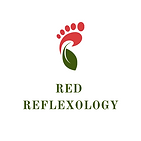Navigating Menopause: A Closer Look at Reflexology's Potential Benefits
- Shona Rathore

- Nov 22, 2023
- 2 min read
Embarking on the journey through menopause is a significant life transition for women,
bringing about various physical and emotional changes. In this exploration, we delve into
the realm of reflexology and examine its potential benefits in easing the symptoms
associated with menopause. Reflexology, an ancient practice rooted in the belief that
specific points on the feet, hands, face and ears correspond to different parts of the body, and offers a holistic approach to managing the challenges of this transformative phase.

Understanding Menopause:
Menopause, a natural biological process, marks the end of a woman's reproductive years
and typically occurs in the late 40s or early 50s. Hormonal fluctuations during this time can
lead to a range of symptoms, including hot flushes, night sweats, mood swings, insomnia,
and fatigue. Exploring alternative therapies becomes increasingly important for those
seeking non-invasive ways to alleviate these symptoms.
Reflexology operates on the principle that specific points on the feet, hands, and ears
correspond to organs, glands, and other parts of the body. By applying targeted pressure to
these reflex points, practitioners aim to stimulate energy flow and promote balance within
the body. In the context of menopause, reflexology seeks to address hormonal imbalances
and alleviate associated symptoms.

Benefits of Reflexology for Menopause:
Hormonal Balance:
Reflexology is believed to stimulate the endocrine system, which plays a crucial role in
regulating hormones. By focusing on reflex points associated with the pituitary, thyroid, and
adrenal glands, reflexologists aim to restore hormonal balance, potentially easing symptoms
like hot flushes and mood swings.
Stress Reduction:
Menopause can be a stressful and an emotionally taxing experience for many women.
Reflexology is renowned for its ability to induce relaxation by reducing stress and anxiety
levels. The calming effects of reflexology may contribute to improved sleep, reduced
irritability, and an overall enhanced sense of well-being.
Improved Sleep:
Insomnia and disrupted sleep patterns are common challenges during menopause.
Reflexology's relaxation-inducing effects may help improve sleep quality by addressing
factors such as stress and anxiety. By focusing on reflex points associated with the pineal
and pituitary glands, practitioners aim to regulate sleep-wake cycles.
Alleviation of Physical Symptoms:
Reflexology is not only about addressing emotional well-being but also about relieving
physical discomfort. By targeting reflex points linked to specific organs and body systems,
reflexologists aim to alleviate physical symptoms such as headaches, joint pain, and
digestive issues that may accompany menopause.
Enhanced Circulation:
Improved blood circulation is a well-documented benefit of reflexology. This enhanced
circulation may contribute to better nutrient and oxygen delivery to cells, potentially aiding
in the overall well-being of women undergoing menopause.

As we explore complementary therapies, reflexology emerges as a promising avenue for
women seeking relief from the challenges of menopause. While research on the specific
benefits of reflexology for menopause is ongoing, many women find comfort in its holistic
approach. It's essential for women to consult with healthcare professionals before
incorporating reflexology into their menopause management strategy, considering it as one
of the many tools available to navigate this transformative phase with grace and comfort.
.png)





Comments